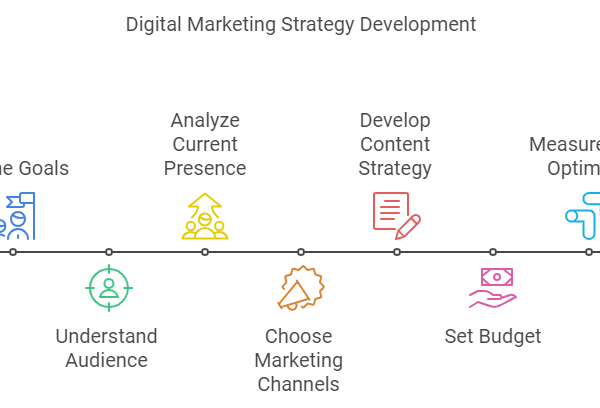
Introduction:
In the ever-evolving landscape of education, the role of Level 4 Higher Level Teaching Assistants (HLTAs) has experienced significant changes, shaped by the dynamic policies that govern the profession. In this blog post, we will delve into the historical shifts in policies regarding HLTAs, and explore the potential impact of these changes on the profession. Emphasizing the importance of ongoing professional development will be a key theme, highlighting its role in ensuring HLTAs are well-equipped to meet the evolving demands of education.
Historical Overview:
In the not-so-distant past, the role of a Higher Level Teaching Assistant was often undefined, with varying responsibilities across different schools and regions. Policies lacked standardization, leading to disparities in training, expectations, and recognition of the role. However, recognizing the vital support HLTAs provide to teachers and students, education authorities worldwide have gradually implemented policies to streamline and professionalize the position.
Standardization and Recognition:
Over time, policymakers have recognized the need for standardization in the training and responsibilities of HLTAs. The implementation of standardized qualification frameworks, such as the Level 4 Certificate in Higher Level Teaching Assistant, reflects a commitment to ensuring that individuals in this role possess a consistent and recognized skill set.
This standardization not only benefits HLTAs but also provides educational institutions with a clear benchmark for hiring and evaluating the performance of these professionals. It fosters a sense of professional identity and validates the crucial role HLTAs play in the educational ecosystem.
Inclusion and Diversity:
Another noteworthy evolution in policies regarding HLTAs is the increasing emphasis on inclusion and diversity. With a growing awareness of the diverse needs of students, policies now encourage HLTAs to undergo specialized training to support learners with various abilities, learning styles, and backgrounds.
This shift reflects a broader recognition of the importance of creating inclusive learning environments. Policies now often require Higher Level Teaching Assistants to engage in ongoing professional development to stay abreast of best practices in inclusive education and cater to the unique needs of every student.
Integration of Technology:
In recent years, the integration of technology in education has become a focal point for policymakers. Recognizing the transformative potential of digital tools, policies have started to encourage Higher Level Teaching Assistants to incorporate technology into their practices. This might involve utilizing educational apps, interactive platforms, or adaptive learning resources to enhance teaching and learning experiences.
The evolving policies signal an acknowledgment of the role technology plays in preparing students for a tech-driven world. As a result, HLTAs are encouraged to engage in continuous professional development to stay proficient in integrating relevant technologies into their support strategies.
Higher Level Teaching Assistants: Potential Impact on the Profession
The evolving policies surrounding Higher Level Teaching Assistants have a profound impact on the profession, shaping its identity, responsibilities, and overall contribution to the educational landscape.
- Professional Recognition: Standardized policies bring about a sense of professional recognition for HLTAs. With clear qualification standards, the profession becomes more respected, attracting skilled individuals who see it as a legitimate and rewarding career path.
- Enhanced Role Clarity: Evolving policies provide clarity regarding the roles and responsibilities of HLTAs. This clarity is essential for effective collaboration with teachers, ensuring that both educators and support staff work harmoniously to create a conducive learning environment.
- Increased Accountability: As policies emphasize ongoing professional development, HLTAs are held to a higher standard of accountability. This commitment to continuous learning ensures that professionals in this role are equipped with the latest pedagogical techniques, educational trends, and tools to provide optimal support to students.
Importance of Ongoing Professional Development:
In the face of these policy changes, the importance of ongoing professional development for Higher Level Teaching Assistants cannot be overstated. Continuous learning is not just a requirement; it is a catalyst for professional growth and improved student outcomes.
Ongoing professional development allows HLTAs to:
- Stay Informed: Keeping abreast of policy changes, emerging educational trends, and advancements in pedagogy ensures that HLTAs remain informed professionals, ready to adapt to evolving educational landscapes.
- Enhance Skills: Professional development opportunities provide avenues for HLTAs to enhance their skills, whether it be in inclusive education, technology integration, or specialized support for diverse learning needs.
- Build Confidence: With each new skill acquired, Higher Level Teaching Assistants gain confidence in their abilities, contributing to a positive work environment and fostering stronger relationships with both students and colleagues.
- Navigate Change Effectively: Education is a dynamic field, and policies will continue to evolve. Ongoing professional development equips HLTAs with the resilience and adaptability needed to navigate change effectively.
Conclusion:
In conclusion, the evolution of policies regarding Higher Level Teaching Assistants reflects a broader commitment to professionalizing and standardizing the role. These changes have far-reaching implications for the profession, from increased recognition to a more defined and accountable role within the educational ecosystem.
Amidst these changes, the importance of ongoing professional development emerges as a guiding principle for HLTAs. Embracing continuous learning ensures that professionals in this role remain agile, informed, and ready to provide the best possible support to students in an ever-changing educational landscape. As policies continue to shape the future of Higher Level Teaching Assistants, the commitment to ongoing professional development will be the cornerstone for success and growth in this dynamic profession.











